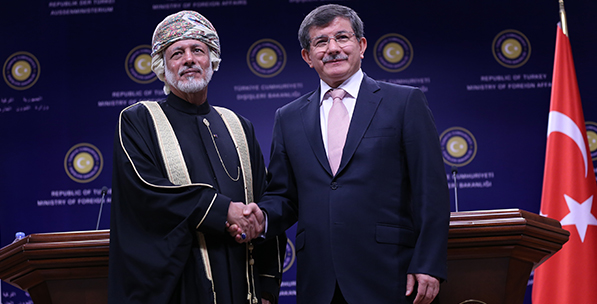The journal Insight Turkey organized its annual conference in Washington, D.C. this year, and one of the topics discussed throughout the meeting was Turkish foreign policy during the Arab Spring. There were insightful and productive discussions regarding the nature of Turkish foreign policy and its transformation in the last four years. One of the issues raised by both myself and some other panelists in this conference was the necessity to put Turkish foreign policy in perspective and to try to understand the main causes of the policies that Turkey has followed during these past years. Turkish foreign policy launched its Middle East opening in the late 1990s in the aftermath of a crisis between Turkey and Syria over the PKK/Abdullah Öcalan issue and ended its years long non-intervention and non-interference policy towards its southern neighbors. In the first years of the new millennium, this process continued, but the real breakthrough took place with the Justice and Development Party (AK Party) government.
The new government not only accelerated the process but also added an economic dimension in order to economically integrate the region. However, a more significant policy in this period was an attempt to resolve conflicts in the region. In fact, most of the crises between Turkey and Western countries took place when its attempts to resolve conflicts in the region were disrupted. For instance the crisis between Turkey and Israel started when Israel through Operation Cast Lead disrupted the process of Syria-Israel negotiations, and relations between Turkey and the U.S. reached an all-time low when Turkey's attempt to resolve the conflict was bypassed by the U.S. government.
When the Arab Spring started, Turkey was one of the first countries that supported the people's movement in the region. There were three issues that were taken very seriously by Turkish foreign policy makers. First of all, Turkey wanted the process to be run by local/native actors on the ground. Part of its opposition to a potential NATO intervention in Libya was a result of this thinking. In addition, Turkey wanted an orderly transition towards democratization. It prioritized the institutionalization of democracy and was skeptical about the impacts of continuation of "street politics" on the process of democratization. And finally, although many people considered Turkish foreign policy unrealistic in this period, the debates within Turkey, especially regarding the concept of model country, were pretty realistic. The term "model" was not a popular word in Turkey since the independence of Central Asian Republics in the immediate aftermath of the Cold War. When this debate was going on in some circles, many Turkish experts warned the newly forming regimes about possible problems of the Turkish model. At the end of the day, the process in Turkey took decades, and during these decades Turkey experienced very long and painful years of military tutelage and judicial intervention in politics. As a result, many in Turkey were warning their counterparts in Middle Eastern capitals about these two types of spoilers of the process of democratization.
Turkey considered its support towards these regimes when the revolutions started as a win-win process in the sense that on the one hand it was the people's demand and movement against the authoritarian regimes that had ruled the country for decades. It was necessary to stand on the right side of history. On the other hand, it was not in the best interest of Turkey, a country that tries to consolidate its democratic regime while being surrounded by authoritarian regimes. Moreover the increasing relevance and influence of public opinion in Turkey and its impact on foreign policy would not allow a democratically elected government to survive by turning its back on the revolutions in the Middle East.
[Daily Sabah, May 1, 2014]








